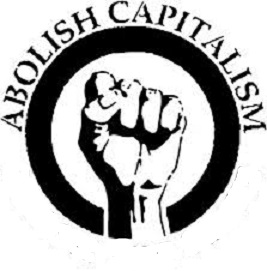The society we aim at building in the future is one where all will have a free and equal hand in the ordering of affairs. How can such a society be built on foundations such as blind worship of the leaders?
We repeat, the lesson we have been repeating for years: no leader, no matter how honest, clever or well-intentioned, can lead the workers out of slavery. No person or group, regardless of how clever, can build a new society which depends for its success upon the knowledge and understanding of the bulk of the population.
Socialism can only be attained by working men and women who know what socialism means and how it is to be obtained. Therefore it is necessary for working men and women to do the comparatively small amount of thinking that is necessary to understand socialism. When they have done so they will know the steps to be taken, and will no longer need to rely on the weak basis of leadership.
In the long run, production under capitalism expands. The accumulation of capital, the self-expansion of value, is, after all, the economic logic of capitalism. The expansion of production, however, does not proceed smoothly at a steady rate but is interrupted from time to time, so the graph of production under capitalism has the appearance of a series of peaks, each generally higher than the previous one. The troughs in between represent periods variously described as crises, depressions, and recessions.
World capitalism is now in one of these troughs. But sooner or later it will recover from this depression, just as it has from all previous ones. This is because depression itself creates the conditions for a re-expansion of production.
In a recession, three things occur which tend to raise the rate of industrial profit.
First, a number of capitalist enterprises go bankrupt and their assets are sold off cheaply to their rivals. The result is a fall in their capital value or a depreciation of the capital invested in them so that fewer profits are needed to maintain the same rate of profit.
Secondly, increased unemployment tends to depress wages, and this once again tends to raise profits.
Thirdly, the cutback in productive investment means that the demand for money-capital is reduced while at the same time the supply (from capitalist enterprises who are not re-investing) is increased, resulting in a fall in the rate of interest and so a rise in the proportion of surplus value going to industrial profits.
These — depreciation of capital, lower wages, lower interest rates — eventually raise the prospects of making profits high enough to encourage those capitalists who have not been re-investing to begin investing again. Business confidence returns. Production begins to pick up and, through the chain reaction effect of more money being spent both by capitalists investing in new means of production and by workers now earning wages again, at an increasing rate.
So begins the process of economic recovery which develops into a boom . . . and eventually ends in a crisis and another depression. This is because boom conditions lead to ‘over-investment’, to too much wealth being devoted to expanding the means of production. This is inevitable due to the anarchy of production under capitalism, to the fact that production is not socially controlled and planned but is decided by hundreds of competing enterprises — and, on the world scale, states also — acting independently and in isolation. Capitalism will continue going through its cycle of depression, recovery, boom, crisis, and depression until the working class consciously decide and act to end it by bringing production under the conscious democratic control of society on the basis of the common ownership of the means of production.
Armed force, within and between individual states, is inescapable under the social system of capitalism. States often disagree over their mutual boundaries; each, in normal circumstances, wishes to preserve, or to extend if possible, its frontiers. The larger the territory, the greater the chance of profit. The ideas of ‘race’ or nationalism, of separate language groupings or cultures, or the traditions of such groupings, are often called on by both sides in such disputes. So also religion.
Once again it is members of the working class who are dying on both sides. They die not in their own interests, nor to build a world fit for human beings, but in the interests of their own ruling class.
In the wars of capitalism, every working-class death is an outrage, and in the war in Ukraine, as in everyone before it, all workers should refuse to take part. They have a bigger job; to live to build a new society in which war will be a black memory.
There has never been a time when the conditions for a transformation to a socialist society have been so ripe. Socialism has never been as indispensable and economically feasible as it is today. Whatever job a worker does, and whatever the pay for it, does not change the facts of their class position in capitalist society. Capitalism is divided; on one side are the workers, who sell their abilities for a wage, and on the other the capitalists, who buy those abilities.
The interests of those two groups have always been opposed, and that will stay as long as capitalism lasts. Only a basically different society can bring us social harmony.





.jpg)
